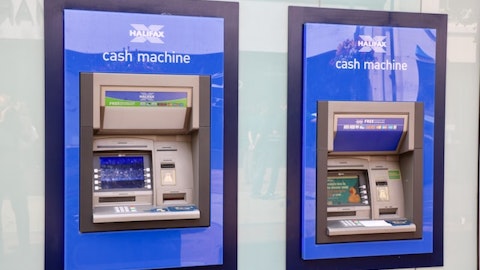Catherine Mealor: Great. Very helpful. Thank you.
John Asbury: Thanks, Catherine.
David Ring: Thanks, Catherine.
Bill Cimino: Josh, we’re ready for our next caller, please.
Operator: Thank you. One moment for our next question. Our next question comes from Russell Gunther with Stephens. You may proceed.
Bill Cimino: Hi, Russell.
Russell Gunther: Hey, good morning, guys. Hi John, good morning. I have Just a couple of follow-ups. So on the loan growth, discussion, I appreciate your thoughts there, how does the North Carolina market fold into there? What’s the opportunity set, particularly as American National folds in?
John Asbury: What do you think Dave, now don’t be too bullish here.
David Ring: Well, we’ve been in North Carolina in real estate.
John Asbury: Yes, we’re there now –
David Ring: Quite a while for six or seven years, and we’ve been pretty successful there. What American National brings is really good commercial industrial bankers in markets like the Triad and the Triangle areas of North Carolina. So we think there’s going to be an opportunity there. We don’t know what it is completely yet, but we think it’s going to be an opportunity for growth.
John Asbury: This could be an incremental growth opportunity. And they sit there – if you look at the map on the I-40 corridor, starting in Winston, Salem over to Greensboro, Burlington, they have a small Raleigh office. And those are good industrial markets. So I agree with Dave. On the real estate side, we mostly bring a bigger balance sheet. On the commercial and industrial side, we bring robust treasury management services, equipment, finance, asset-based lending, and just the infrastructure to be able to better go after, I would say, mid-sized companies. And then Southern Virginia, which used to be called the South Side, where their home turf is Danville, Martinsville over into South Boston. And by the way, we do double down in Roanoke.
These are good commercial and industrial markets and we’ve not had a presence in Southern Virginia. We are in Roanoke, so, we’re bullish. I don’t want to sound too bullish. I’m just saying that these are things that will be incrementally beneficial to us. And if you look at the backgrounds of the American National people, they absolutely do have people with commercial and industrial backgrounds too, in addition to good traditional commercial real estate community banking backgrounds. All of this is beneficial. I think there’s a lot we can do together.
David Ring: – will come in overtime.
John Asbury: Yes, just be clear, over time. So we’ll see where it goes from here. But I think this is really an expansion platform. We’re going to be able to do more things in Southern Virginia, and we’re going to be able to definitely build for a very long time as far as the eye can see along that I-40 corridor and North Carolina, using exactly the same strategy we have here in Virginia. We’re built to be the challenger bank to the large institutions. We’re the alternative to the large institutions. We can do what they do for small and mid-sized businesses. And we think, we do it more responsibly – responsively. And at the same time, we recognize we compete against the small banks all day, every day. So we’re kind of covering both bases. That’s the hallmark of Atlantic Union Bank, authentic human experience plus digitally forward technology, that is our strategy.
Russell Gunther: That’s good color, guys. I appreciate it. Just switching gears with a follow-up on the margin. So a lot of good detail in terms of expectations. One that I wanted to focus on was the deposit remix. Comments made that, that’s slowing, but certainly remain impactful to the NIM. So as you think about where non-interest bearing ultimately shakes out as a percentage of total deposits, just give us some updated thoughts on that front. And is that a function of outflow? Is that a function of remix out of non-IB from current customers into higher-yielding products? Just some additional color would be helpful..



